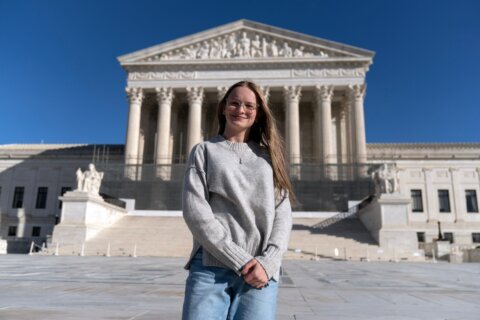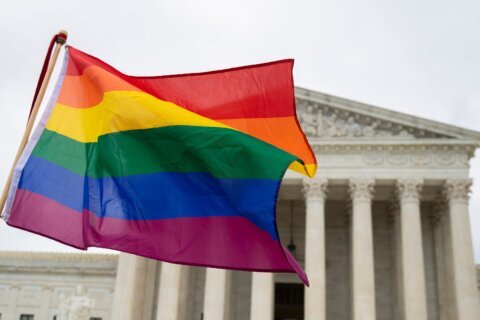In the majority opinion on the case that overturned Roe v. Wade, Justice Clarence Thomas’ concurring opinion called for the reconsideration of all the Supreme Court’s “substantive due process precedents,” including those that could have an impact on LGBTQ families.
A D.C.-area lawyer weighed in on how this could affect families and what parents can do to protect access to their children.
Although the majority opinion in the high court’s decision was directed at abortion, Elizabeth McInturff, a partner at Maryland law firm JDKatz, said there are steps LGBTQ families can take to protect and formalize the parentage of their children in the event their marital or parentage relationships are no longer recognized.
She said Thomas’ opinion signals that change may be coming, particularly in court decisions that recognize same-sex relations and same-sex marriage protections.
So in the event that those decisions go in the way of Roe v. Wade, how does that affect LGBTQ families?
“Marriage, in particular affords, a lot of protections to parents, including being identified as a parent on a birth certificate … If a marriage is invalidated, or parties aren’t married, they don’t share those same legal protections that a married couple does,” McInturff said. That could mean that the presumptions of parentage could be invalidated, as well.
Very often, one parent has a legal standing to a child, whether it’s through biological relation, adoption or other. “It leaves the second parent to have to navigate their own legal parentage of their child,” McInturff said.
One thing families can do to legally cement that relationship is adoption, which McInturff said has been used historically with same-sex couples who are looking to secure their legal parentage to a child.
McInturff, whose firm practices in Maryland and D.C., said that since the overturning of Roe, a number of couples have reached out to her inquiring about second-parent adoption.
“Second-parent adoptions are a form of legal protection, and they can be necessary or even just a good idea, even if that parent is already on the birth certificate. A birth certificate itself only reflects a legal presumption of parentage. However, an actual adoption, a second-parent adoption, is a judicial determination of that parentage that is recognized across the country,” McInturff said.
The District and Maryland have lot of protections afforded to same-sex couples and those seeking second-parent adoptions, she said. But what if you move out of the area to a state that may not recognize your marriage or the presumption of parentage based on your child’s birth certificate?
“You have that second-parent adoption, that, again, is a judicial determination of the parentage … You have this legally recognized, essentially, court order, stating that you are that child’s parent,” McInturff said.
WTOP’s Sarah Jacobs contributed to this report.







